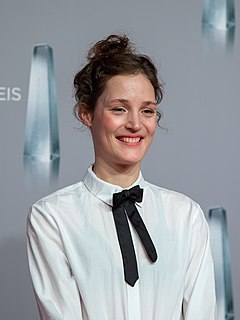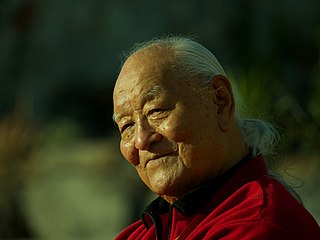A Quote by Anais Nin
Only when the poet and the scientist work in unison will we have living experiences and knowledge of the marvels of the universe as they are being discovered.
Related Quotes
I think I'm one of those people that needed to be seen by someone else to see myself. But then on the other hand, the way I do my work, I always try to only completely focus on my work, so when I do my work I'm only interested in my character. So I don't have an idea of what it means for my career. So this is why I don't feel like I need to be discovered, because I feel like even without being discovered, I will be fine.
Anthroposophy is a path of knowledge, to guide the spiritual in the human being to the spiritual in the universe... Anthroposophists are those who experience, as an essential need of life, certain questions on the nature of the human being and the universe, just as one experiences hunger and thirst.
If you had to call it "unison", it ain't unison. It ain't the same as somebody else. If you can hear that it's unison, and you have to name it something other than "unison", it ain't unison, you know what I mean? It's two guys playin', but one guy is playin' slightly out of tune, one is playin' slightly off meter.
The scientist is not much given to talking of the riddle of the universe. "Riddle" is not a scientific term. The conception of a riddle is "something which can he solved." And hence the scientist does not use that popular phrase. We don't know the why of anything. On that matter we are no further advanced than was the cavedweller. The scientist is contented if he can contribute something toward the knowledge of what is and how it is.
A human being - what is a human being? Everything and nothing. Through the power of thought it can mirror everything it experiences. Through memory and knowledge it becomes a microcosm, carrying the world within itself. A mirror of things, a mirror of facts. Each human being becomes a little universe within the universe!
The books of the great scientists are gathering dust on the shelves of learned libraries. And rightly so. The scientist addresses an infinitesimal audience of fellow composers. His message is not devoid of universality but its universality is disembodied and anonymous. While the artist's communication is linked forever with its original form, that of the scientist is modified, amplified, fused with the ideas and results of others and melts into the stream of knowledge and ideas which forms our culture. The scientist has in common with the artist only this: that he can find no better retreat from the world than his work and also no stronger link with the world than his work.
The chances of human beings being the only intelligent form of life in the universe are so minuscule that it's really kind of crazy to actually - no scientist could ever argue that we would be alone. It's much more likely that there are hundreds of thousands of other intelligences and other life forms out there in the universe just based on a strictly mathematical formula. And what that means is that artificial intelligence has probably already occurred in the universe.






































